Description
About the PAS-ADD Clinical Interview
The PAS-ADD Clinical Interview has been designed to meet the particular problems of assessment in people with intellectual disabilities, but is equally valid for use with the general population. It provides full diagnoses under both the ICD-10 and DSM-IV (TR), and also provides a framework for producing a wider case formulation using other assessment frameworks (behavioural, ecological, psychodynamic etc).
The interview is designed to maximise the possibility of conducting a clinical interview, even if the client’s level of language is poor. Questions are also provided for informants so that the interviews can be conducted with a client and informant, or just with an informant if the client is non-verbal. Information can be collected not just on current mental state, but also on a second representative episode.
The PAS-ADD Clinical Interview uses a scoring system that is transparent to the user, making it very clear to see not just the criteria that have been fulfilled but also those that are close to fulfilment. This makes the process of clinical interpretation easier and based on clear evidence.
There are two parts to the PAS-ADD Clinical Interview:
- The handbook, which includes guidance to the user, notes on the diagnostic algorithms, and the semi-structured interview
- The score forms, available separately for recording the ratings, determining which diagnostic criteria have been met, and bringing together other relevant information to make a comprehensive case formulation
The Moss Psychiatric Assessment Schedules (Moss-PAS) are the successors to this well-known PAS-ADD system. Click here to purchase the updated system.
Audience
Vital information for psychologists, psychiatrists and qualified professionals in community mental health teams, mental health trusts, acute health trusts, universities and students.
Details
ISBN: 9781908066114
Publisher: Pavilion Publishing and Media
Publication: 30 June 2011
Content:
The interview provides full diagnoses under both ICD-10 and DSM-IV (TR), including:
ICD-10
Agoraphobia
Social phobia
Specific phobia
Panic disorder
Generalized anxiety disorder
Obsessive compulsive disorder
Depressive episode
Depressive episode with psychotic features
Manic episode
Manic episode with psychotic features
Schizophrenia
Other non-organic psychosis
Other persistent delusional disorder
Delusional disorder
Psychosis unspecified
Autistic spectrum disorder*
*Screening only
DSM-IV (TR)
Agoraphobia
Social phobia
Specific phobia
Panic disorder
Generalized anxiety disorder
Obsessive compulsive disorder
Depressive episode
Depressive episode with psychotic features
Manic episode
Manic episode with psychotic features
Schizophrenia
Schizophreniform disorder
Delusional disorder
Psychotic disorder NOS
Brief psychotic disorder
ADHD
Autistic spectrum disorder*
Author
Steve Moss has worked for 30 years in disability research, initially in the fields of children with visual impairment and children’s motor development, and subsequently in the areas of intellectual disability and mental health assessment.
His work on development of the PAS-ADD system (Psychiatric Assessment Schedules for Adults with Developmental Disabilities) is particularly well known, and these assessments are now used in many countries throughout the world.
He worked for 20 years at the Hester Adrian Research Centre, Manchester University, and later at the Institute of Psychiatry, King’s College London, where he continues to have an honorary post.

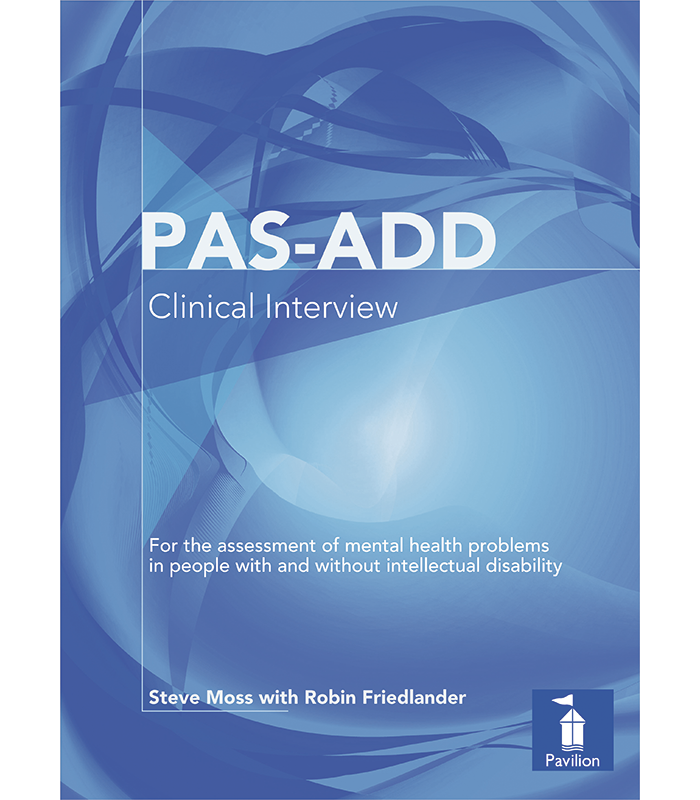
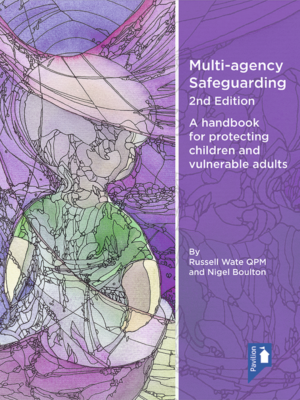
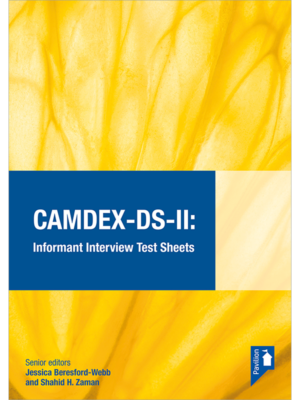
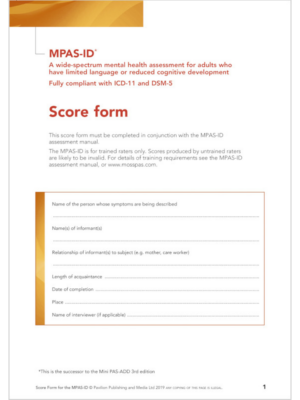
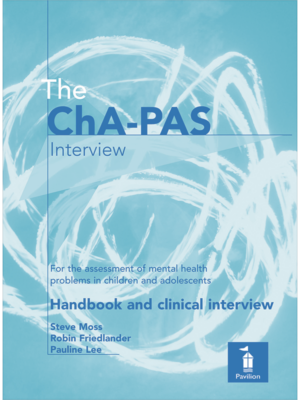
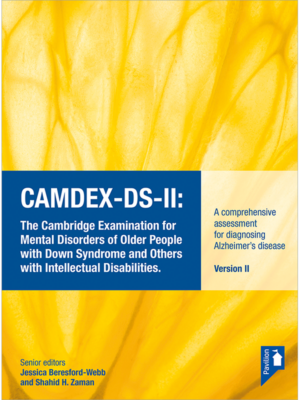
Reviews
There are no reviews yet.